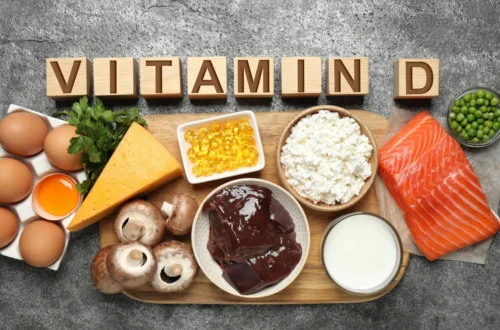
Understanding Drug Addiction: The First Step Towards Recovery
Addiction is a complex and often misunderstood disease. It affects millions of people worldwide, destroying lives and relationships along the way. The first step toward recovery is understanding what addiction is, how it works, and why it’s so difficult to overcome. In this blog post, we’ll delve into the science behind drug addiction, explore some common myths about the disease, and provide insights on how you or your loved one can begin their journey toward lasting recovery. So buckle up and get ready for an eye-opening ride through the world of addiction! Trucare Trust is one of the leading and best De-Addiction Centre in Mumbai for alcoholics and drug addicts.
What is Drug Addiction?
When people hear the word “addiction,” they often think of drugs. Drug addiction is a real and serious problem that affects millions of people around the world.
People may start using drugs for different reasons. Some people use them to cope with trauma or stress, while others use them to escape from reality or numb their pain. Whatever the reason, drug addiction can quickly take over a person’s life and ruin their health, relationships, and career.
Drug addiction is a complex disease that affects the brain and body in many ways. When someone is addicted to drugs, they cannot control their use and will continue to use despite negative consequences. They may even go through withdrawal symptoms when they try to quit.
There are many different types of treatment available for drug addiction, but the first step is always to seek help from a professional. With treatment, people can recover from drug addiction and lead healthy, productive lives.
Causes and Risk Factors of Drug Abuse
There are many different causes and risk factors of drug abuse, which can make it difficult to understand why someone may start using drugs in the first place. However, there are some common reasons that people may turn to drugs, such as:
-To cope with or escape from negative emotions or experiences, such as trauma, anxiety, or depression
-To fit in with a certain group of friends or peers who use drugs
-To relieve boredom or experience new things
-To self-medicate for other health conditions, such as pain or insomnia
Certain individual factors can also increase someone’s risk of abusing drugs, such as:
-Having a family history of drug abuse or addiction
-Going through major life changes or stressful events
-Suffering from underlying mental health disorders, such as anxiety or depression
-Having easy access to drugs
Signs and Symptoms of Drug Addiction
The first step towards understanding drug addiction is recognizing the signs and symptoms of addiction. People who are addicted to drugs may exhibit a variety of physical, psychological, and behavioral symptoms.
Physical signs and symptoms of drug addiction can include:
– changes in appearance, such as weight loss or gain, change in sleeping patterns, or pupils that are larger or smaller than usual
– poor hygiene and grooming habits
– slurred speech or impaired coordination
– mood swings or sudden changes in behavior
– financial problems due to spending money on drugs instead of other necessities
Psychological signs and symptoms of drug addiction can include high levels of anxiety or paranoia, delusions or hallucinations, depression, irritability, or mood swings. People who are addicted to drugs may also become isolate themselves from friends and family members, as well as stop participating in activities they once enjoyed. Furthermore, they may engage in risky behaviors, such as sharing needles. And finally, they may lie about their drug use or deny having a problem altogether. Behavioral signs and symptoms of drug addiction can include: unsuccessful attempts to quit using drugs, continued use despite negative consequences (such as job loss or legal problems), spending large amounts of time obtaining, using, and recovering from the effects of the drug, social withdrawal.”
Understanding the Consequences of Drug Use
Most people are aware that drug use can lead to addiction and other negative consequences, but they may not be aware of the specific ways that drugs can impact their lives. Drug use can lead to physical and mental health problems, financial problems, relationship problems, and work problems. It can also lead to legal problems, such as being arrested for possession or driving under the influence.
People who are struggling with drug addiction often have a hard time recognizing the negative consequences of their behavior. They may believe that they can control their use and that they will not face any serious consequences. However, the reality is that drug use always comes with risks. The more someone uses drugs, the greater the risks become.
If you or someone you know is struggling with drug addiction, it is important to understand the potential consequences of continued use. Only by understanding the risks can you make an informed decision about whether or not to continue using drugs. If you decide to stop using drugs, there are many resources available to help you achieve sobriety.
Treatment and Prevention
The first step in understanding drug addiction is to realize that it is a medical condition that requires treatment. Drug addiction is not a choice; it is a disease that affects the brain and changes the way a person thinks, feels, and behaves.
There are many different types of treatment available for drug addiction, and the best approach depends on the individual’s unique situation. Treatment can involve detoxification, medication, counseling, and behavioral therapy.
Detoxification is the first step in treatment and involves getting rid of all traces of the drug from the body. This can be done through a medically supervised detox program or on one’s own.
Medication can be an important part of treatment for drug addiction. It can help reduce cravings and withdrawal symptoms, as well as improve mood and relieve anxiety. Medications used to treat drug addiction include buprenorphine, naltrexone, and methadone.
Counseling can help people with drug addiction understand their illness, develop coping skills, and make positive changes in their lives. Behavioral therapy can also help identify triggers for drug use and teach healthy coping mechanisms.
Types of Rehabilitation Programs Available
There are many different types of rehabilitation programs available to those struggling with addiction. It is important to find one that fits your needs and lifestyle. Some common types of programs include:
Inpatient Rehabilitation Programs: These programs require you to live at the facility for a set period, usually 30-60 days. During this time, you will receive intensive therapy and treatment for your addiction.
Outpatient Rehabilitation Programs: These programs allow you to live at home while attending treatment sessions during the week. This type of program is typically less intensive than inpatient rehabilitation.
sober living homes: These homes provide a safe and structured environment for people in early recovery. Residents are required to follow rules and maintain sobriety while living there.
Therapeutic Communities: These communities are long-term residential treatment facilities where people receive treatment and support from other residents in recovery.
Individual Therapy: This type of therapy is provided by a licensed therapist and focuses on addressing the underlying issues that contribute to addiction.
Clinical Trials: clinical trials are research studies that test new treatments or interventions for addiction. Participation in a trial can provide access to new, innovative treatments that are not yet widely available.
Concluding Remarks
There are a variety of treatment options available for drug addiction, and the right choice depends on the individual’s unique situation. However, the first step towards recovery is always understanding addiction and how it works. With this knowledge, you can begin to make positive changes in your life that will lead to lasting sobriety. Get Directions to De-Addiction Centre in Mumbai.



